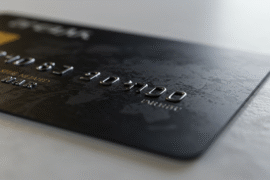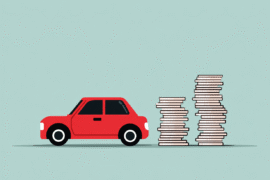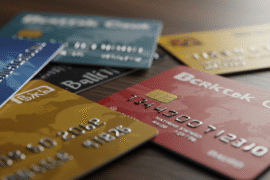This article may contain references to products or services from one or more of our advertisers or partners. We may receive compensation when you click on links to those products or services. Nonetheless, our opinions are our own.
The information presented in this article is accurate to the best of our knowledge at the time of publication. However, information is subject to change, and no guarantees are made about the continued accuracy or completeness of this content after its publication date.
To be financially healthy in the long run, you need to know how credit scores work. Your credit score is important for getting a credit card, car loan, mortgage, or even lower insurance rates. It also helps you find the best deals. Lenders, insurers, and even landlords use it as a report card on your finances to see how trustworthy you are. A higher score can get you better terms and big savings over time, while a lower score could mean higher interest rates or applications that are turned down. We’ll explain the most important things that affect your credit score, how to start building or rebuilding credit, and how to keep a good credit profile. We’ll give you clear and useful advice that is tailored to your goals, whether you are just starting out with your finances or trying to improve your credit score.
- Credit Scores and Their Impact on Your Journey
- Factors That Influence the Length of Credit History
- Practical Steps to Start Building Good Credit Today
- The Role of Credit Utilization in Your Credit Building Strategy
- How Long Should You Expect to Wait for Good Credit?
- Methods That May Help Build or Rebuild Credit
- Consider Becoming an Authorized User
- Maintaining Strong Credit: Tips for Long-Term Success
- Conclusion
- Frequently Asked Questions
- What is considered good credit?
- How long does it take to build good credit?
- What factors influence how quickly I can build credit?
- Can I build good credit without a credit card?
- How can I speed up the process of building good credit?
- What mistakes should I avoid when building credit?
- Is it possible to recover from a bad credit score?
- How often should I check my credit report?
- Does closing old accounts affect my credit building?
- Recommended Reads
Credit Scores and Their Impact on Your Journey
When it comes to navigating the world of credit, understanding your credit score is crucial. Your score is a reflection of your creditworthiness, influencing not only loan approvals but also interest rates on mortgages, auto loans, and even insurance premiums. A solid credit score can lead to significant savings over time, while a low score might limit your options. Here are some factors that impact your credit score:
Payment History
Consistently making on-time payments accounts for a sizable portion of your score. Late payments can linger on your report for up to seven years, impacting your creditworthiness.
Credit Utilization
This ratio compares your current credit card balances to your total credit limits. Keeping it below 30% is generally recommended.
Length of Credit History
The longer your accounts have been open, the better it reflects on your score. Age of accounts plays a vital role in establishing a solid credit profile.
Types of Credit
Having a mix of different types of credit—such as revolving accounts like credit cards and installment loans like a car loan—can boost your score.
New Credit
Too many new credit inquiries within a short period can signal risk, so it’s best to apply for credit judiciously.
| Credit Factor | Impact on Score (%) |
|---|---|
| Payment History | 35% |
| Credit Utilization | 30% |
| Length of Credit History | 15% |
| Types of Credit | 10% |
| New Credit | 10% |
Building a good credit score takes time and patience, but by understanding these factors, you can take proactive steps toward improving your financial future. Whether you’re looking to make a significant purchase or simply secure the best rates possible, a strong credit score will play a role in your financial journey.
Factors That Influence the Length of Credit History
Several critical factors can impact the length of your credit history, affecting how lenders view your creditworthiness. First and foremost, the age of your credit accounts plays a significant role. The longer you’ve maintained your credit accounts, the more favorable your history appears. This is why keeping older accounts open, even if you’re not using them frequently, can positively influence your credit score. Consider these factors that can influence your credit history length:
Account Age
Your oldest account contributes to your average account age, which can boost your score.
Types of Credit
A mix of credit accounts, such as credit cards, mortgages, and car loans, can enhance your history.
New Accounts
Opening several new accounts in a short period can shorten your average account age, which may lower your score.
Your credit utilization also indirectly affects your credit history length. By maintaining low balances on your credit accounts, you demonstrate responsible credit usage, thereby positively influencing your overall credit profile.
| Account Type | Impact on History |
|---|---|
| Credit Card | Contributes to credit utilization; age matters |
| Installment Loans | Adds diversity; older loans are viewed favorably |
| Retail Store Credit | Shorter history; can benefit from long-term management |
Ultimately, patience is key. Building a robust credit history takes time, but by nurturing your credit accounts and making wise financial choices, you’re laying down the foundations for a strong credit profile that can open up new financial opportunities in your future.
Practical Steps to Start Building Good Credit Today
Building good credit might seem daunting, but with a few focused steps, you can embark on this journey today. Start by checking your credit report. You are entitled to a free report from each of the three major credit bureaus once a year. Take the time to review it for any inaccuracies and dispute anything that seems off. This simple action can reveal a lot about your credit standing and help you address issues before they spiral.
Next, consider applying for a secured credit card if you’re just starting or trying to rebuild your credit. With a secured card, you’ll deposit a certain amount that serves as your credit limit. Make small purchases each month and pay off the balance in full. This not only establishes a positive payment history but also keeps your credit utilization low, which is crucial for your score. Remember, consistency is key; aim to pay your bills on time every month and keep your credit utilization ratio below 30% for a healthy credit profile.
| Action | Impact on Credit |
|---|---|
| Check Credit Report | Identifies inaccuracies and areas for improvement |
| Secure a Credit Card | Establishes positive payment history |
| Pay Bills on Time | Boosts credit score significantly |
| Maintain Low Utilization | Shows responsible credit management |
The Role of Credit Utilization in Your Credit Building Strategy
Your credit utilization ratio is very important for your overall credit score and, as a result, for building good credit. The percentage of your total credit limit that you’re currently using is called your credit utilization. If you keep this ratio low, ideally below 30%, lenders may see you as a responsible borrower.Here’s why it matters:
Improves Credit Score
The lower your utilization, the more favorably lenders look upon you, which can boost your credit score.
Demonstrates Financial Responsibility
Using only a portion of your available credit shows that you can manage credit responsibly.
Prevention of Overextension
Maintaining a reasonable utilization level helps you avoid accumulating debt that could become difficult to manage.
To make it easier to track your credit utilization, you might find it helpful to keep a simple table to record your limits and current balances:
| Credit Card | Credit Limit | Current Balance | Utilization % |
|---|---|---|---|
| Card A | $5,000 | $1,500 | 30% |
| Card B | $3,000 | $600 | 20% |
| Card C | $10,000 | $1,000 | 10% |
By monitoring these figures regularly, you’ll be better equipped to keep your credit utilization in check and enhance your credit profile. A proactive approach can lead to lasting financial benefits.
Voted "Best Overall Budgeting App" by Forbes and WSJ
Monarch Money helps you budget, track spending, set goals, and plan your financial future—all in one app.
Get 50% OFF your first year with code MONARCHVIP
How Long Should You Expect to Wait for Good Credit?
When it comes to building good credit, patience is key. Generally, you can expect it to take anywhere from three to six months to establish a solid credit score if you’re starting from scratch. This timeframe often hinges on a few factors that can boost your creditworthiness:
Payment History
Consistently making on-time payments is crucial. Even one late payment can set you back significantly.
Credit Utilization
Keep this ratio below 30% of your total available credit limit. Lower utilization signals responsible borrowing behavior.
Types of Credit
A mix of credit accounts—like credit cards, installment loans, or mortgages—can strengthen your score over time.
As you continue to build your credit, remember that longevity matters. A longer credit history can enhance your score, which means maintaining your accounts over time can be beneficial.
| Factor | Impact on Score (%) |
|---|---|
| Payment History | 35% |
| Credit Utilization | 30% |
| Length of Credit History | 15% |
| Types of Credit | 10% |
| New Credit Inquiries | 10% |
With time and consistent responsible practices, you’ll be well on your way to enjoying the benefits of good credit, such as lower interest rates and increased borrowing power.
Methods That May Help Build or Rebuild Credit
Methods to help build or rebuild credit include:
Secured credit cards: Use a secured credit card to establish a positive payment history.
Credit builder loans: These specialized loans help individuals build credit through regular, on-time payments.
Become an authorized user: Being added to someone else’s credit account can help you benefit from their positive credit history.
Monitor your credit report: Regularly check your report for errors and ensure all information is accurate.
Understanding the factors that contribute to building good credit is essential. Payment history, credit utilization, length of credit history, types of credit, and new inquiries all play a role in determining your score. Maintaining a utilization ratio below 30% and diversifying your credit accounts can boost your score over time. Prioritizing timely payments and being mindful of new credit applications will further strengthen your profile.
Becoming an authorized user on someone else’s credit account is a strategic move to boost your credit history. By piggybacking on their positive credit behavior, you can indirectly improve your credit score and establish a stronger financial foundation. This method, along with secured credit cards or credit builder loans, can help you work toward the benefits of good credit. Consistency and responsibility are key.
Open a Secured Credit Card
Opening a secured credit card is another effective way to build your credit history. By making regular, on-time payments and keeping your credit utilization low, you demonstrate responsible management. This will gradually reflect positively on your credit score. Alongside strategies like monitoring your credit report and understanding credit score factors, using a secured card is a proactive step toward financial stability. Patience and persistence are essential.
Maintaining Strong Credit: Tips for Long-Term Success
Building and maintaining a strong credit profile is crucial for financial health. First and foremost, ensure you pay your bills on time. Late payments can significantly impact your score, so set reminders or automate payments. Keeping your credit utilization ratio below 30% is also vital. For example, if you have a credit limit of $10,000, try to keep your balance under $3,000.
Regularly monitor your credit report. Errors can be more common than you think, and even a small mistake can affect your score. Request a free report annually from Equifax, Experian, and TransUnion. Monitoring helps you catch discrepancies early and correct them, keeping your profile accurate.
| Credit Management Tips | Why It Matters |
|---|---|
| Pay bills on time | Builds a positive payment history |
| Keep credit utilization low | Demonstrates responsible credit use |
| Check reports regularly | Identifies errors and potential fraud |
Conclusion
Your credit score is more than just a number; it says a lot about how trustworthy you are with money. You can make smart decisions that will help you in the long run if you know how your payment history, credit utilization, account age, and types of credit affect your score. Every responsible step you take, whether it’s using secured cards, credit builder loans, or just keeping your balances low and paying on time, makes your credit profile stronger. It takes time to fix bad credit or build new credit, but you can reach your goals if you are patient, stick to your plans, and make smart financial choices. A good credit score opens the door to more financial freedom, from getting better interest rates to being able to use your money more freely. Begin today, keep an eye on your progress, and stick to the rules of good credit management.
Frequently Asked Questions
What is considered good credit?
Good credit typically refers to a FICO score of 700 or above. This score suggests to lenders that you are a responsible borrower, making you eligible for better interest rates and loan options.
How long does it take to build good credit?
Building good credit can take anywhere from three to six months if you start with no credit history. Reaching a score deemed “good” may take a few years of consistent, responsible financial behavior.
What factors influence how quickly I can build credit?
Factors include payment history, credit utilization, length of credit history, types of accounts, and recent inquiries. Consistently paying on time and maintaining low balances are key.
Can I build good credit without a credit card?
Yes, you can. Options like student loans, car loans, or secured loans can help establish a credit history. Becoming an authorized user also helps.
How can I speed up the process of building good credit?
Make timely payments, keep balances low, and avoid taking on too much debt. Check your credit report regularly and address any errors promptly.
What mistakes should I avoid when building credit?
Avoid missing payments, applying for too much credit at once, maxing out cards, and neglecting to monitor your report. These mistakes can delay credit building.
Is it possible to recover from a bad credit score?
Yes. While it may take time, positive habits like timely payments and reducing debt will gradually improve your score. Credit counseling or strategic planning can help.
How often should I check my credit report?
At least once a year is recommended, though more frequent checks can help you catch errors or identity theft sooner. Many services offer free checks year-round.
Does closing old accounts affect my credit building?
Yes, it can. Closing old accounts may hurt your score, especially if they have a long, positive history. It’s often better to keep them open and in good standing.

Reviewed and edited by Albert Fang.
See a typo or want to suggest an edit/revision to the content? Use the contact us form to provide feedback.
At FangWallet, we value editorial integrity and open collaboration in curating quality content for readers to enjoy. Much appreciated for the assist.
Did you like our article and find it insightful? We encourage sharing the article link with family and friends to benefit as well - better yet, sharing on social media. Thank you for the support! 🍉
Article Title: How Long Does it Really Take to Build Good Credit?
https://fangwallet.com/2025/07/21/how-long-does-it-really-take-to-build-good-credit/The FangWallet Promise
FangWallet is an editorially independent resource - founded on breaking down challenging financial concepts for anyone to understand since 2014. While we adhere to editorial integrity, note that this post may contain references to products from our partners.
The FangWallet promise is always to have your best interest in mind and be transparent and honest about the financial picture.
Become an Insider

Subscribe to get a free daily budget planner printable to help get your money on track!
Make passive money the right way. No spam.
Editorial Disclaimer: The editorial content on this page is not provided by any of the companies mentioned. The opinions expressed here are the author's alone.
The content of this website is for informational purposes only and does not represent investment advice, or an offer or solicitation to buy or sell any security, investment, or product. Investors are encouraged to do their own due diligence, and, if necessary, consult professional advising before making any investment decisions. Investing involves a high degree of risk, and financial losses may occur including the potential loss of principal.
Source Citation References:
+ Inspo
There are no additional citations or references to note for this article at this time.












































